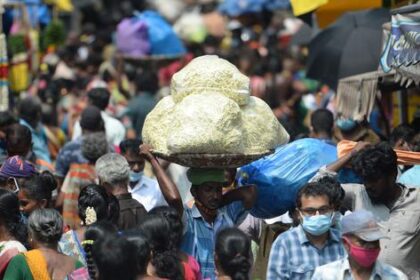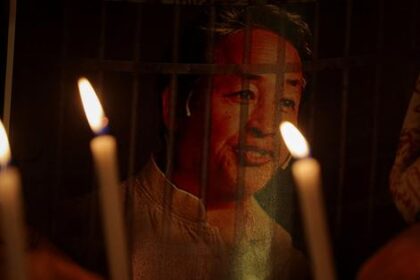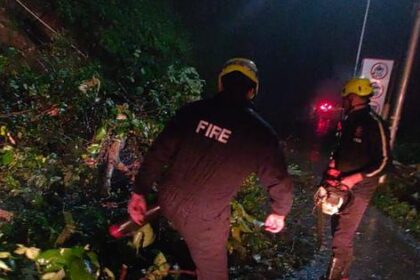Displaced families in Odisha struggle with loss, economic pressures, and mental health issues due to climate change.
Rows of houses in Bagapatia, located in Odisha’s Kendrapara district, stand as a testament to the challenges faced by families displaced by climate change. Since 2018, this settlement has become home to 571 families forced to relocate from Satabhaya, a village that succumbed to the rising waters of the Bay of Bengal. As India’s first rehabilitation village for those affected by coastal erosion, Bagapatia presents a new set of difficulties for its residents.
During a visit in June, the aftermath of recent rain was evident, with muddy puddles lining the roads. Malati Baral, a 62-year-old grandmother, shared her experience living in this new environment. “Every time it rains, we have water all around,” she noted, highlighting the frequent flooding that disrupts their lives. In her previous village, fishing and farming provided sustenance, but in Bagapatia, the land allocated to each family is uncultivable, leaving them reliant on government rations that fall short of their needs.
Baral, who had spent decades nurturing her family and community in Satabhaya, now finds herself struggling to provide for her household of seven. With her two sons and a daughter-in-law having migrated to Kerala for work, she is left to care for her grandchildren while grappling with financial instability. “There was no lack in Satabhaya; here, I am struggling financially,” she lamented. The emotional toll of losing her familiar surroundings and the disintegration of her family unit has contributed to her growing anxiety.
This experience is not unique to Baral. Many women in the village, like her neighbors Jayanti Das and Promila Jena, face similar psychological burdens as they navigate life after displacement. The United Nations Framework Convention on Climate Change recognizes the extent of these issues as ‘non-economic loss and damage,’ which encompasses cultural and emotional losses that are not easily quantified. Studies have shown that such displacements often lead to increased anxiety, sadness, and other mental health challenges.
Psychologist Nutan Dwivedi, based in Bhubaneswar, explains that while men also experience stress, women tend to process trauma in a way that magnifies their sense of loss. To address these mental health challenges, the Odisha State Disaster Management Authority has initiated training programs aimed at providing psychosocial support to those vulnerable to climate-related disasters. These efforts, in collaboration with the National Institute of Mental Health and Neuro Sciences, aim to equip grassroots workers with the skills to recognize mental distress and offer basic counseling.
Despite being aware of the changes climate change has wrought in their lives, residents of Bagapatia remain largely uninformed about global discussions surrounding non-economic losses at climate conferences. The United Nations has proposed a loss and damage fund intended to assist developing nations facing the repercussions of climate change. However, the complexities involved in quantifying cultural and emotional losses present ongoing challenges for policymakers. Recognizing that these non-economic factors are crucial for sustainable rehabilitation, experts like Shailendra Yashwant advocate for comprehensive approaches that address both economic and non-economic impacts of climate change.








